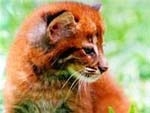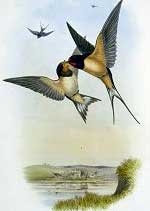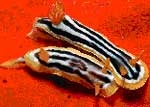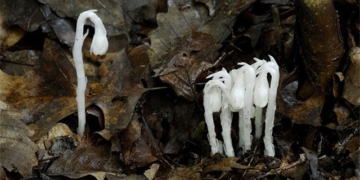The honey badger was launched into the air after daring to challenge an antelope that was 20 times its size in an African park.
Honey badgers are renowned as the fearless rulers of the animal kingdom, the warriors of the wild. This species is known for its audacity, showing no fear of the sky or the earth, ready to attack cobras, taunt leopards, and confront crocodiles…
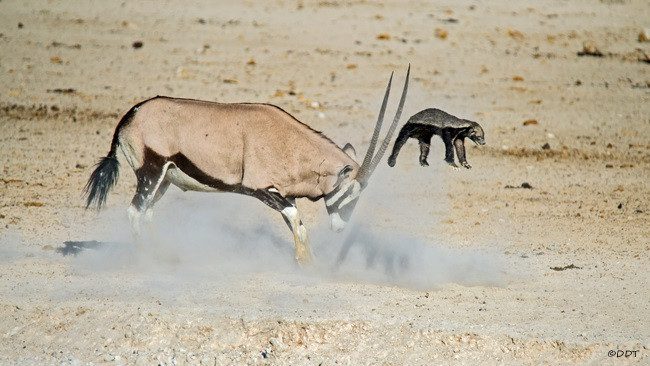
Honey badger pays the price for challenging an enemy many times larger. (Photo: Dirk Theron).
Photographer Dirk Theron captured the aggressive honey badger chasing a rare African antelope near a waterhole in Etosha National Park, Namibia, as reported by Sun yesterday. Initially, the honey badger went straight to the edge of the waterhole and began to drink, ignoring the surrounding animals. Suddenly, it charged at a solitary antelope nearby.
The antelope took a few steps back to avoid the honey badger, then thrust its one-meter-long horns toward the attacker, sending the honey badger soaring 5 to 6 meters into the air before crashing to the ground. While Theron thought the honey badger was dead, it quickly sprang back up, shook itself off, and continued to pursue the antelope.
The fierce battle continued until the antelope was forced to retreat. The honey badger celebrated its victory by leisurely drinking water.
Honey badgers are mammals belonging to the weasel family and are native to Africa, Southwest Asia, and India. They are primarily carnivorous, rarely hunted in the wild due to their thick skin, defensive abilities, and strong resistance to venom.
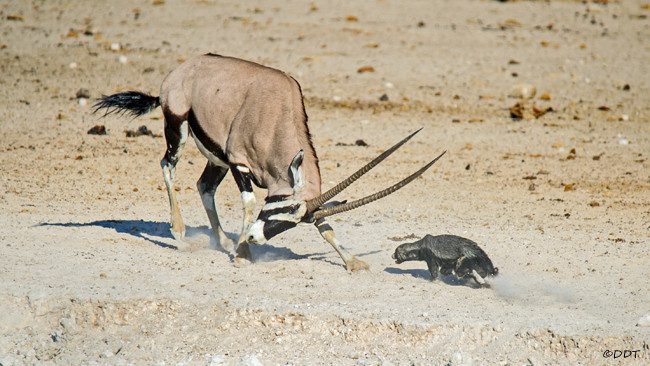
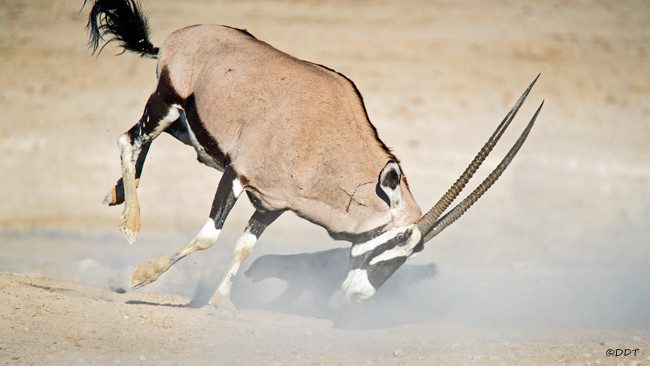
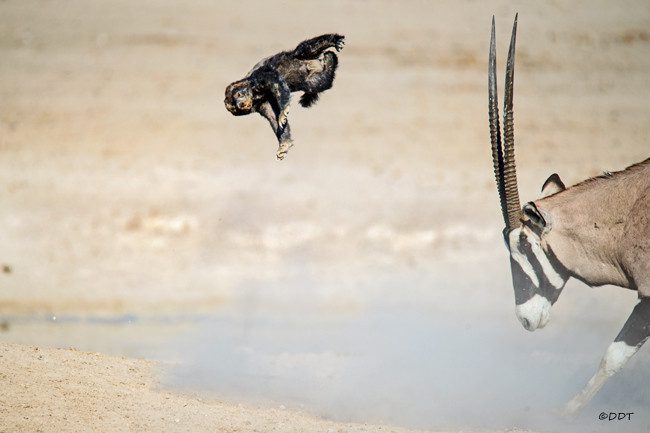
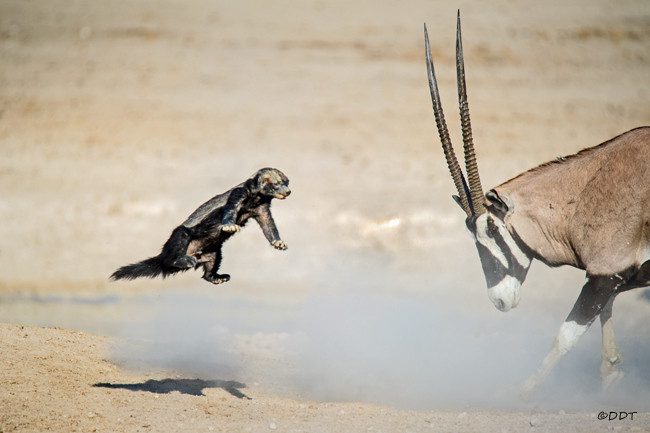
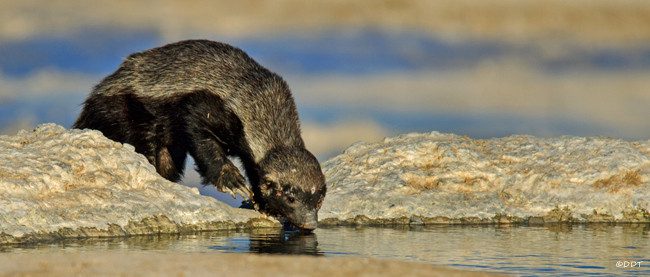
The following day, the photographer continued observing from the same spot and, strangely enough, witnessed another battle between the same honey badger and a wild dog. This time, the brave honey badger emerged victorious again. How peculiar!
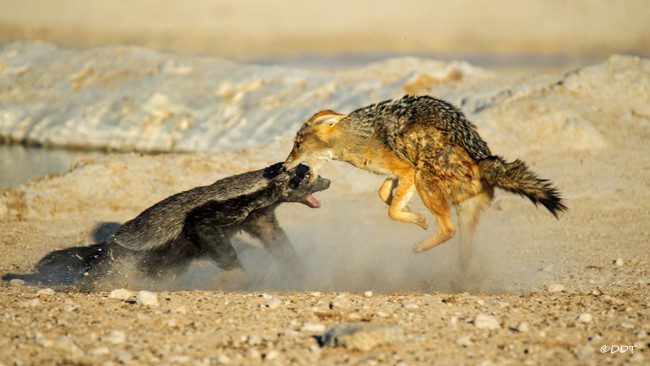
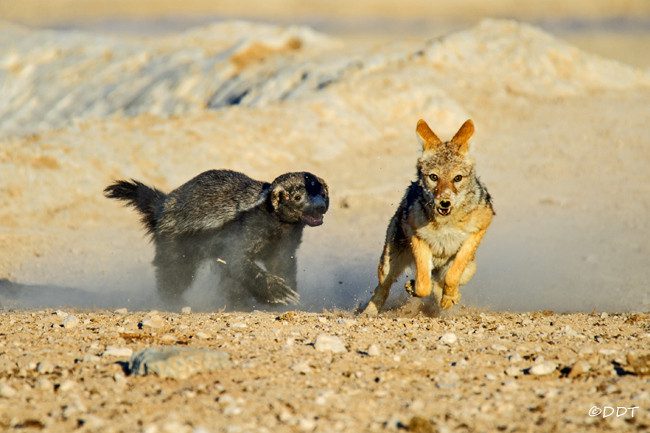
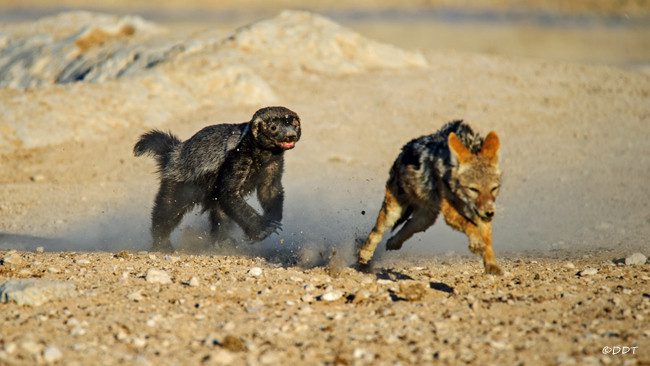
- Why do we sometimes continue doing things even when we know they won’t yield the expected results?
- The world is discarding 3 million face masks every minute; this mountain of waste is becoming a ticking time bomb
- At the beach, a girl finds a cute little octopus, only to discover it’s a more toxic predator than a king cobra
- Asia’s top diva “comes back to life” on stage after 27 years, moving the audience deeply








































